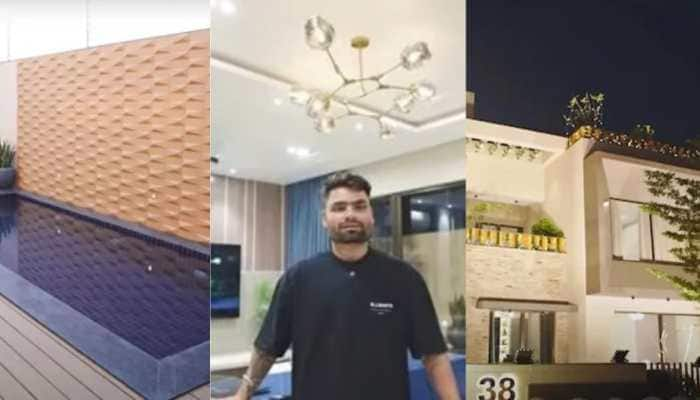9-phase Lok Sabha polls: Will young & restless stay excited?
The nine phase poll schedule announced by the Election Commission (EC) on March 5 might prove to be a dampener for the young who hold the key to the outcome of the polls in 2014.
Trending Photos
)
The nine phase poll schedule announced by the Election Commission (EC) on March 5 might prove to be a dampener for the young who hold the key to the outcome of the polls in 2014.
The young by nature are restless and this election schedule to be conducted in nine phases promises to be a long drawn multi team test match series. The 2014 polls would be conducted over 35 days. This time, however, the polls would be spread over a period of 35 days beginning April 7 and ending on May 12, 2014.
Fed on an overdose of 20:20 cricket, young get excited by instant results. The technology savvy young have been pampered by social media where a picture uploaded can generate thousands of instant likes.
The flair with which the young have embraced the technology in the country shows their penchant for quick results. Therefore, waiting for the outcome of an action for more than a month or more (the counting is on May 16), is bound to tire out the interest level.
The nine phase poll schedule announced by EC is the longest since 1999. The last Lok Sabha poll in 2009 was a five-phase schedule completing the polls under a month. The 2009 polls were conducted over a period of 27 days in five phases while the 2004 general polls were conducted in 20 days in a four phase election. Earlier in 1999 the polls were conducted under a month’s time in five phases.
The EC mounted the nine phase schedule in view of mammoth logistics requirements incumbent to holding of a peaceful election in the country.
The nine phase polling schedule announcement comes at a time when the youth in the country had demonstrated a visible interest in the political process coming out to vote in large numbers in five state assembly polls conducted late last year.
The young have traditionally been rather indifferent to the voting process, especially in big cities of the country. There is general distaste for politics. Even as the 15th Lok Sabha returned a record 70 parliamentarians in the 40-age group, majority of them represented dynasty politics, something that the young detest politics for in India.
The youth have voted in less numbers in earlier general elections with the difference with the national average being about four to five per cent. The migratory nature of youth also favors a shorter duration of poll schedule to ensure minimum disruption. The migratory nature arises out of heavy urbanization among the young largely driven by economic aspirations.
As the Election Commission is pushing yet for fresh voter registrations of those aged 18 as of January 1, 2014, estimates suggest that in overall number terms, around 2.32 crore voters this time will be between 18 and 19, accounting for 24 per cent of the increase. Those between the ages of 18 and 23 are estimated to be 4.87 crore. Six states-Rajasthan, Chhattisgarh, Madhya Pradesh, West Bengal, Uttar Pradesh and Assam-that account for 201 Lok Sabha constituencies, the number of voters between 18 and 19 years of age per constituency is higher than the national average.
The recent assembly polls saw an upsurge in youth participation, especially in Delhi. While it was still below the national voting average, which by and large has been on the rise, the 20 per cent enrolment for the youth increased to almost 80 per cent in places like Delhi, in other places 60 to 70 per cent in that age group.
Given this momentum let there be hope that even a nine phase poll would be endured by the young as they play a decisive role in scripting India of their dreams.
(The writer is Editor, Zee Research Group (ZRG))
Stay informed on all the latest news, real-time breaking news updates, and follow all the important headlines in india news and world News on Zee News.
Advertisement
Live Tv
Advertisement







)
)
)
)
)
)
)
)
)
)
